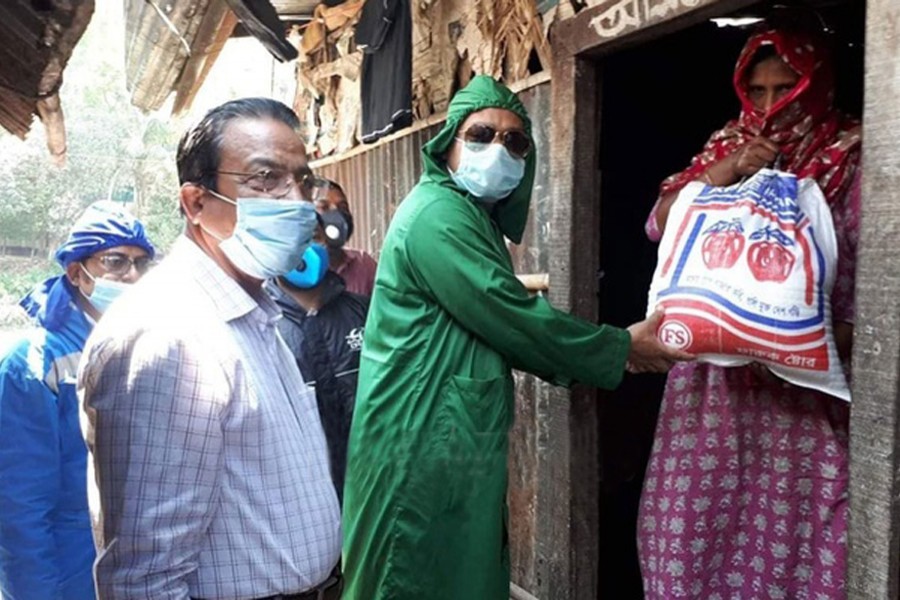With most people complying with the home-confinement regime in the country, particularly in urban areas, the poor and marginal people are certainly the worst hit. Income erosion is the severest for those who live from hand to mouth. Keeping their body and soul together is the greatest challenge right now. The longer the lockdown-like situation prevails, the greater the sufferings of these marginalised segment of people. It is clear that many of these people cannot survive the crisis unless they are provided with foods. No wonder the Amnesty International (AI) has suggested for adoption of effective steps in order to protect day labourers, homeless and others at risk in South Asia, one of the regions with a huge population and weak healthcare infrastructure.
These people must be taken care of not only in their interests but also in the interests of the well off and the more privileged. So crowded are the places where the poor and marginal people live in that once the pandemic catches up with them, it is likely to trigger coronavirus's unrelenting march all across the length and breadth of the countries in the region. The Bangladesh government's social security net is vastly extended but here is an unprecedented crisis when even relief distributors, physicians and caregivers have to think of their own protection before taking care of patients, the poor and the vulnerable. With movement severely restricted and life coming to a standstill, there are disruptions of supplies all around. In a situation like this, providing the poor with the wherewithal calls for strong will power and innovative arrangements.
In a situation what a centralised government with enough resources and a developed public health system like that of China can do is not possible even for developed democracies let alone developing countries like Bangladesh. So the best option for the nation would be to do as much as the rich and better-off people can do from their respective positions to alleviate the sufferings of the needy. There have been many instances of personal contribution to the cause of the suffering humanity. But one of the most inspiring is that of a class XII student at Goalanda Kamrul Islam Government College, who became an orphan in his childhood and has continued his study with help from people of the locality. Because he sings well, help came his way. This boy sold his only guitar he had in order to distribute soaps among those who cannot buy one.
Much as such contribution may be extraordinary and exemplary, there is a need for organisations and individuals with large funds at their disposal for the service of the distressed people. Already many including MPs and police officers have started feeding the vulnerable in some areas on their own. But it is the BRAC Institute of Governance and Development (BIGD) that is going to launch a systematic programme under the title 'Rapid Research Response' in order to chart a well-defined course for helping the marginalised and the vulnerable. The good news is that it will share the research findings with other actors so that all can act in a coordinated manner and avoid overlapping.


